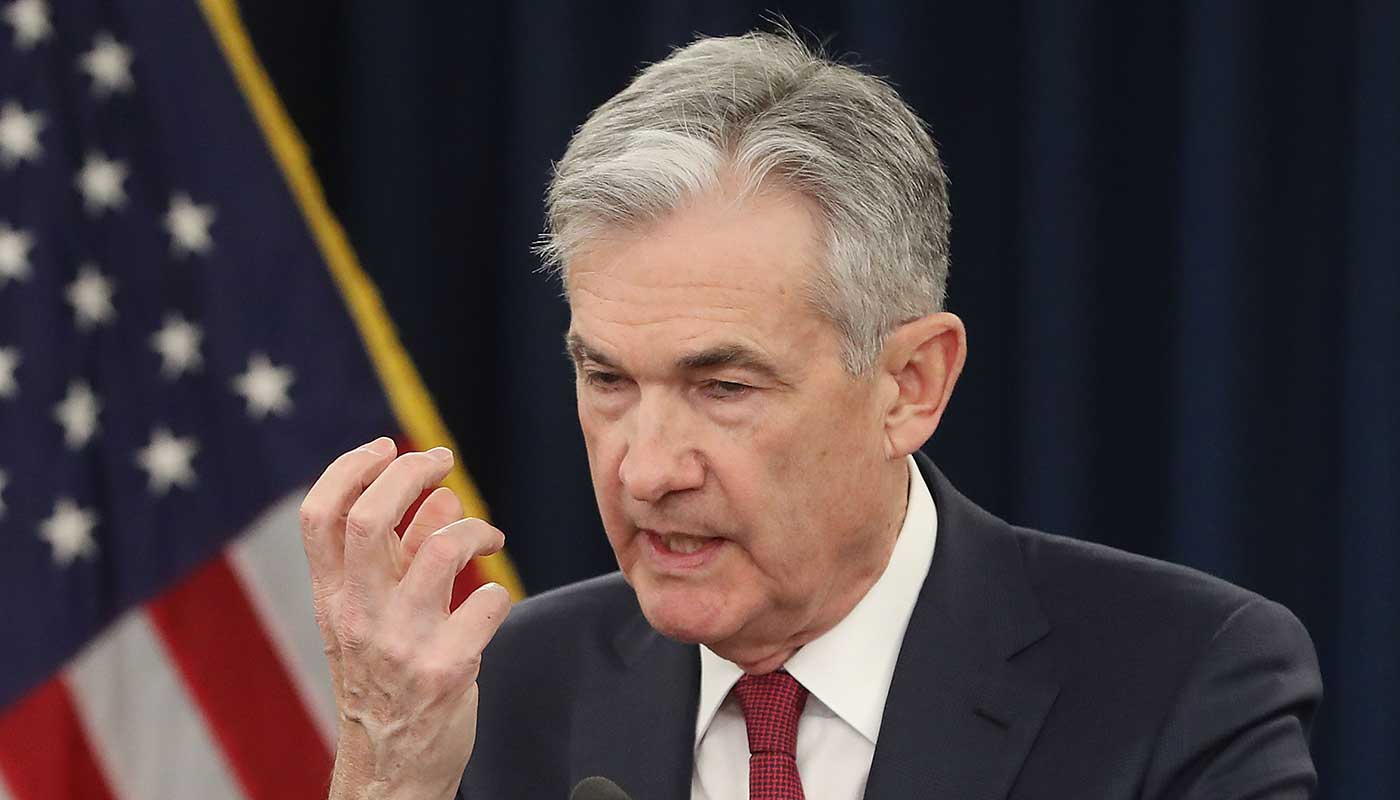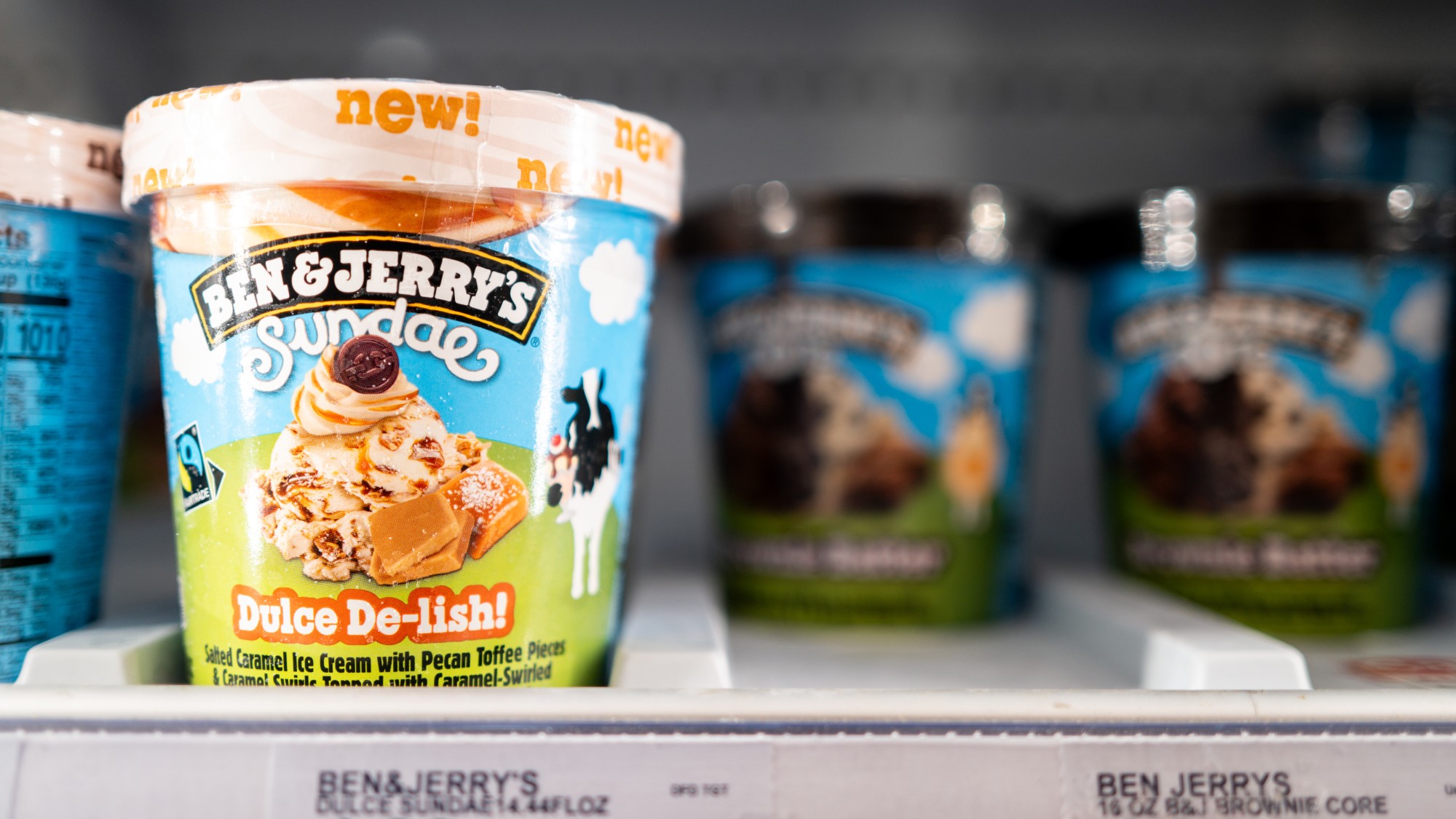US Federal Reserve raises rates despite pressure from Trump
Fed chairman Jerome Powell says US economy may be softening

A free daily email with the biggest news stories of the day – and the best features from TheWeek.com
You are now subscribed
Your newsletter sign-up was successful
The US Federal Reserve has raised interest rates again, following a two-day meeting to discuss the state of the US economy.
The move, which adds 0.25% to official interest rates aiming to reach a target between 2.25% and 2.5%, came despite unprecedented public lobbying by Donald Trump, who had pre-emptively called a rate rise “foolish” and “crazy”.
“Presidents generally avoid criticising the bank publicly, for fear of politicising the institution,” the BBC says.
The Week
Escape your echo chamber. Get the facts behind the news, plus analysis from multiple perspectives.

Sign up for The Week's Free Newsletters
From our morning news briefing to a weekly Good News Newsletter, get the best of The Week delivered directly to your inbox.
From our morning news briefing to a weekly Good News Newsletter, get the best of The Week delivered directly to your inbox.
Trump had, on Tuesday, taken to Twitter to urge the Federal Reserve not to make “yet another mistake”, and to “feel the market, don’t just go by meaningless numbers”.
The Washington Post reports that “investors hit the sell button shortly after the Fed’s announcement”, with the Dow Jones industrial average dropping sharply to close 350 points down for the day, leading other global markets down as well.
The market reaction came despite assurances from Federal Reserve chairman Jerome Powell that the US economy was in relatively good shape.
“Despite this robust economic backdrop and our expectation for healthy growth, we have seen developments that may signal some softening,” Powell said.
A free daily email with the biggest news stories of the day – and the best features from TheWeek.com
However, Powell also said there was a “fairly high degree of uncertainty” about what the Fed’s next steps will be, with most analysts agreeing that the expected number of rate rises in 2019 will be reduced from three to two.
-
 What to know before filing your own taxes for the first time
What to know before filing your own taxes for the first timethe explainer Tackle this financial milestone with confidence
-
 The biggest box office flops of the 21st century
The biggest box office flops of the 21st centuryin depth Unnecessary remakes and turgid, expensive CGI-fests highlight this list of these most notorious box-office losers
-
 The 10 most infamous abductions in modern history
The 10 most infamous abductions in modern historyin depth The taking of Savannah Guthrie’s mother, Nancy, is the latest in a long string of high-profile kidnappings
-
 Currencies: Why Trump wants a weak dollar
Currencies: Why Trump wants a weak dollarFeature The dollar has fallen 12% since Trump took office
-
 TikTok: New owners, same risks
TikTok: New owners, same risksFeature What are Larry Ellison’s plans for TikTok US?
-
 Trump wants a weaker dollar, but economists aren’t so sure
Trump wants a weaker dollar, but economists aren’t so sureTalking Points A weaker dollar can make imports more expensive but also boost gold
-
 Leadership: A conspicuous silence from CEOs
Leadership: A conspicuous silence from CEOsFeature CEOs were more vocal during Trump’s first term
-
 Powell: The Fed’s last hope?
Powell: The Fed’s last hope?Feature Federal Reserve Chairman Jerome Powell fights back against President Trump's claims
-
 The end for central bank independence?
The end for central bank independence?The Explainer Trump’s war on the US Federal Reserve comes at a moment of global weakening in central bank authority
-
 Can Trump make single-family homes affordable by banning big investors?
Can Trump make single-family homes affordable by banning big investors?Talking Points Wall Street takes the blame
-
 Phish food for thought: Ben & Jerry’s political turmoil
Phish food for thought: Ben & Jerry’s political turmoilIn the Spotlight War of words over brand activism threatens to ‘overshadow’ the big ice cream deal